Picture the scene. You turn on the TV and there’s a hard-hitting documentary about war, or a news story about a recent disaster. Your mind starts to wander. You think back to the frivolities of your day: shopping in town, meeting friends for coffee, sharing jokes on social media. Watching people suffering, you start to feel guilty for all the things that made you happy today.

Maybe you’ve just changed the channel to avoid that Oxfam advert, or crossed the road because you’re avoiding the Big Issue seller. It’s probably the wrong thing to do, but you don't want to be confronted by guilt anymore. But now you're trying to avoid the 'reality of life' - which makes you feel even more guilty. You're in a lose-lose situation. If you ever feel guilty for being happy when you're worried you could be doing something more to help, you're not alone. Read our Happiful guide to the small steps you can take, that don't cost you very much in either time or money, which add up to something pretty special in the bigger picture.
The simple act of giving has a wealth of benefits for your mental health. While Kickstarter helps people develop products and businesses, there are a lot of social enterprise ventures and inventions that can change our world for the better. By supporting one of these projects, you can feel happy knowing that you’re contributing to the bigger picture and supporting innovation and progress in the world.
Fans of mindfulness might want to support a new product such as the 'Do Epic Happy 2018 Planner'.
The simple act of giving has a wealth of benefits for your mental health
The creators wanted to combine the practicality of a goal planner with the benefits of mindfulness, to reduce your daily life stresses, and get you on track to a happier, healthier you. As well as helping your productivity with practical elements such as public holidays, to-do lists and calendars, it ides adult colouring pages with Mandala patterns, dream boards and daily gratitude pages. What more could you want from an organiser?
Head to kickstarter.com and search for "Happy Planner" to get on board with the project.
Feeling the pressure to give money can be a huge burden. Sometimes, when we’re asked to give money, we do so to avoid embarrassment – no one wants to be the “tight one”, do they? But, that can mean we give money out of obligation, rather than because we want to.
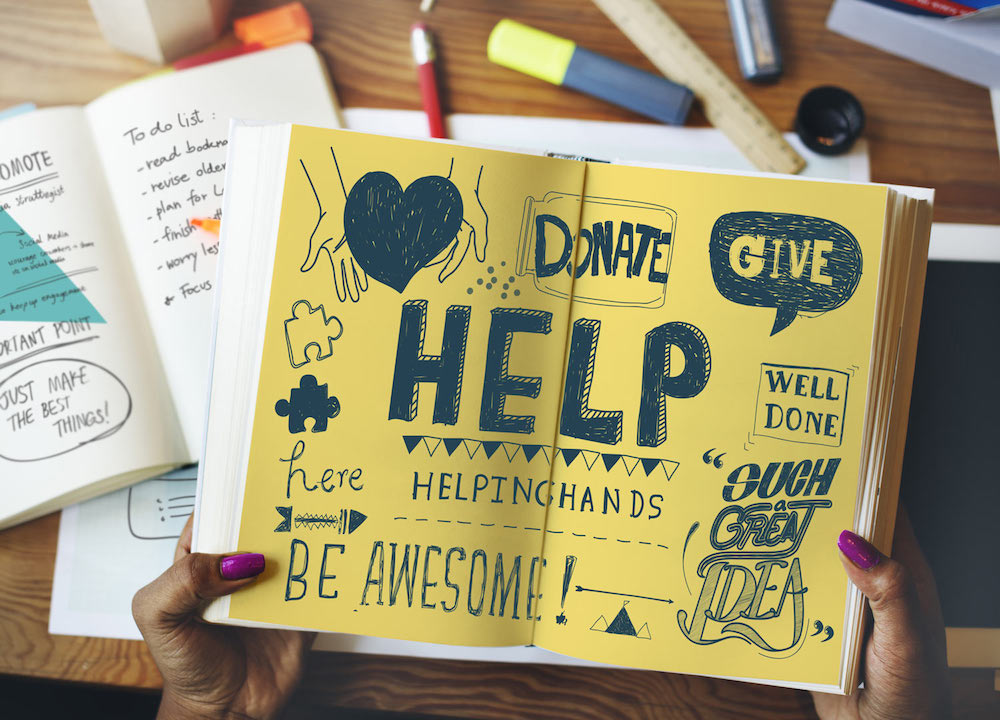
Are you an employer?
Contact a Payroll Giving agency to set up a scheme. Make deductions each time you run payroll. The donation will be taken from your employees’ pay before tax, but after National Insurance.
It’s easy to feel guilty for not donating every time there’s a bucket collection outside our local supermarket. But in reality, we can’t give money to every charity. e thing is, donating doesn’t have to be a chore. And it doesn’t have to be all the time. But if there’s a cause that really resonates with you, you’ll feel better in knowing that while you can’t donate to everything, you are helping something.
It might be donating to an organisation like ActionAid: an international charity supporting the most disadvantaged women and girls in more than 45 countries. Or something closer to home, like UK-based Sane, which looks to improve and support the lives of those affected by mental illness.
Visit actionaid.org.uk or sane.org.uk to donate and help them continue their amazing work.
Sites like Just Giving and GoFundMe allow you to help people all over the world with donations of whatever size you can afford
Sites like Just Giving and GoFundMe allow you to help people all over the world with donations of whatever size you can afford. These can range from memorials for loved ones, to helping grant the wishes of people in need, like Jonathan in Ramsden Bellhouse, Essex, who’s quality of life could dramatically improve with a medical assistance dog. Or there’s Ryan from Bristol who’s outgrown his current electric wheelchair, and needs a new one to go “cruising the streets of Keynsham” again. Visit gofundme.com or justgiving.com to search for a cause that connects with you.
Bookworms out there will know the joy that discovering a new story brings. While it can be hard to discard our favourite novels from our bookshelves, imagine how good you’ll feel knowing that someone else is experiencing the joy of reading your favourite book for the first time.
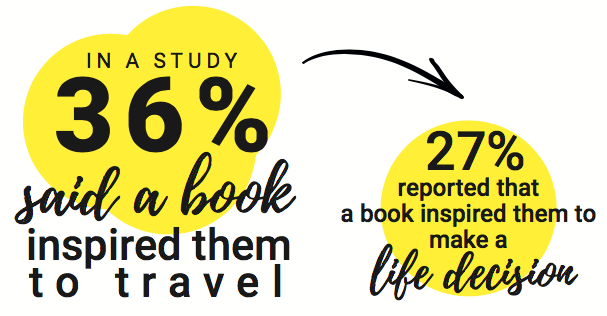
If you can’t bear to prise yourself from your favourite books (we can’t really blame you), why not join Book Aid International’s Reverse Book Club. By supporting this charity with a donation, you’ll be helping to send new, relevant books to libraries in Africa every month. e books you help send will make a lasting difference to people who really need books.
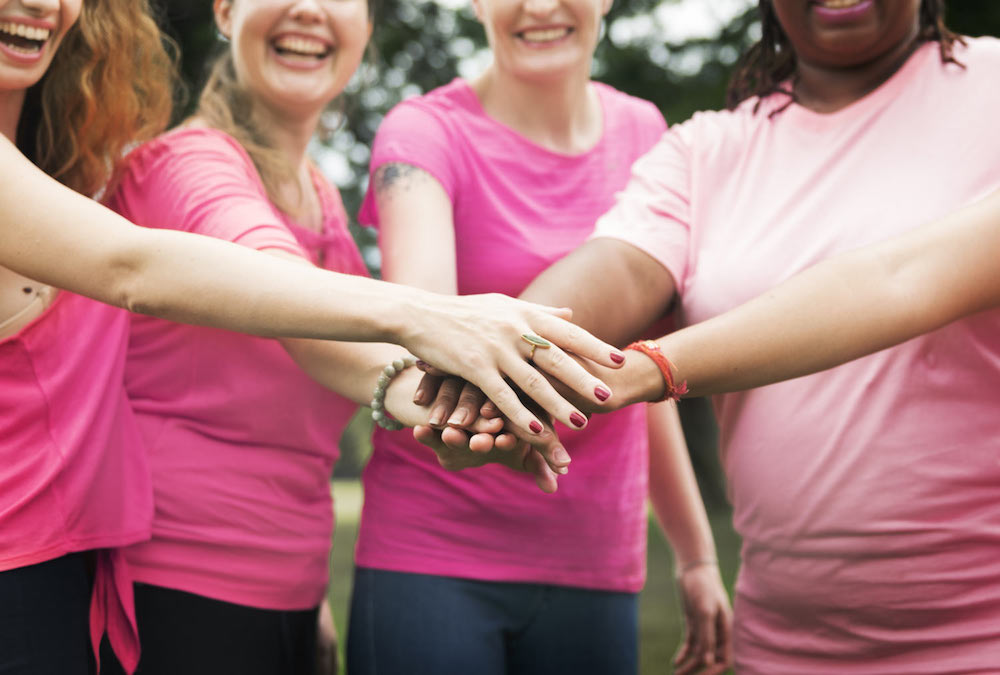
For those not feeling quite so brave, there are lots of options closer to home. Many charities now run their own fundraising sporting events, whether you fancy a night-time walk, a muddy obstacle course, or even ballroom dancing.
Visit a charity you’d like to support’s website to find out more about their local sporting fundraising events.
You may not have time to organise an event yourself, but you can support a cause by attending a peaceful protest or march. You can find out about these on sites like eventbrite.co.uk, or keep an eye on social media.But, if a protest isn’t quite what you’re a er, there are plenty of other ways to participate in raising awareness for an issue you’re passionate about. Getting creative is one way to make your voice heard, through music, art, or writing. If you want some inspiration, listen to Bruce Springsteen and Joe Grushecky's protest song against President Trump, "That's What Makes Us Great".
Sometimes a picture can say a thousand words. With the Black Lives Matter campaign, artists in America have effectively shows how equality has stagnated, with images that appear to be from the Civil Right Movement in the 1960s, except they're actually from the present day. With images able to go viral on social media, your art could reach millions of eyes. It's possible to make your voice heard without saying a word.

While it’s great to be concerned with world affairs, sometimes it’s the issues at home that we feel more empowered to do something about. If you’re passionate about an issue and want parliament to hear your voice, start a petition. If it gets 10,000 signatures, the government will respond, and if it gets 100,000 signatures, it will actually be considered for debate in Parliament!
We’re all aware of our burden on the Earth, and we all know the obvious things to reduce our waste and conserve energy. But, what are the less obvious ways we can help the environment?
Take littering – a divisive environmental issue. You are either part of the problem, or part of the solution. Almost £1 billion is spent by local authorities across England to clean up our communities, which could be spent much more wisely. So, get involved and clean up your local area. Whether you go solo, or recruit your friends, family, or colleagues, or even take part in some of Keep Britain Tidy's initiatives, you'll feel better for it, and the environment will thank you.
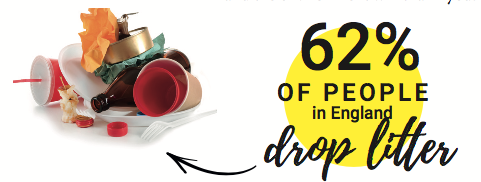
If picking up rubbish isn’t your bag, why not reduce your waste from home? Stop getting all that junk mail. Contact the Royal Mail for an opt out form to stop receiving all those leaflets, or unaddressed promotional materials that you resent having to pick up off your doormat anyway. While you’re at it, do you really need that printed bank statement, when you can view it online whenever you like? Perhaps it’s time to adjust your communication settings online.

Visit ageuk.org.uk to find out how you could get involved.
With the question of whether you should give money to a rough sleeper, most charities are of the same standpoint: it’s better not to. While your intentions might be good, there’s a chance you might be funding drugs or alcohol, or putting the person at risk of exploitation or mugging.
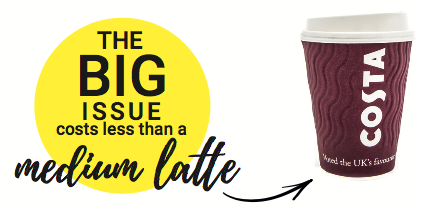
But, fortunately, giving doesn’t stop at money. Giving your time, to go over and speak to someone, might really brighten their day. You could buy them a hot drink or sandwich – and if they don’t take it, they don’t need it.
If you don’t feel comfortable approaching someone on your own, you can still help out. Visit streetlink.org.uk to report seeing a rough sleeper. Streetlink can refer them to suitable agencies. They’re linked with No Second Night Out, who say 60% of rough sleepers are new to the streets, and aim to make sure that anyone sleeping rough for the first time doesn’t have to do it again.
Brits have a reputation as being a nation of pet lovers. Our spirited concern to rescue and preserve the dignity of animals
is what led Britain to be the first country in the world to start a welfare charity for animals: the Society for Prevention of Cruelty to Animals (known to us now as the RSPCA).

Go to rspca.org.uk/getinvolved to help some furry friends near you.


Comments